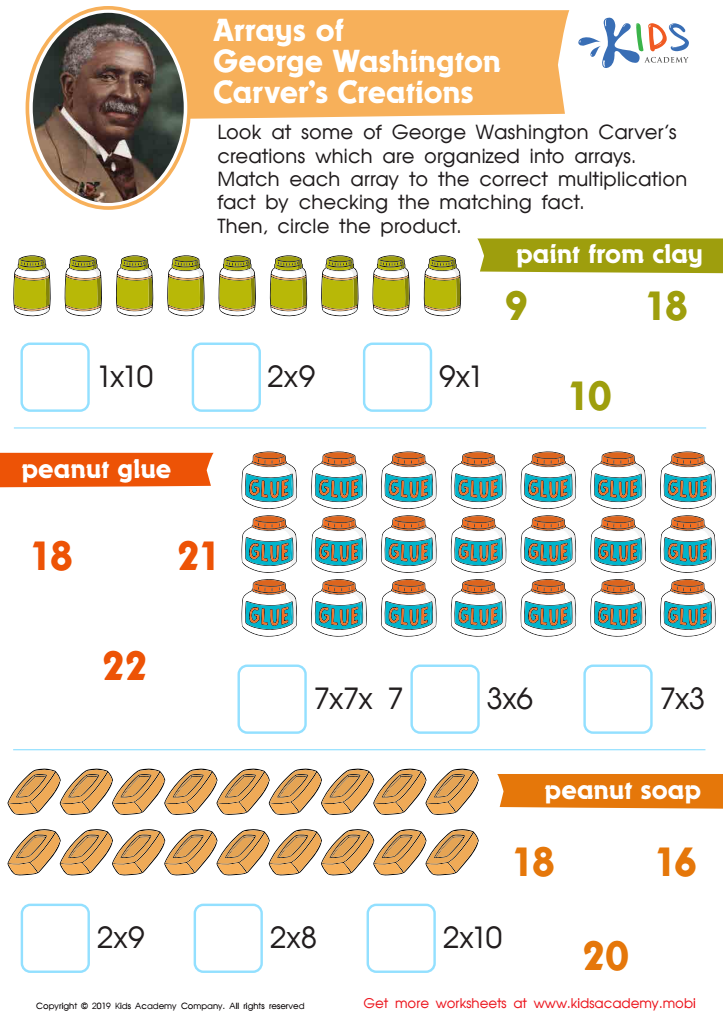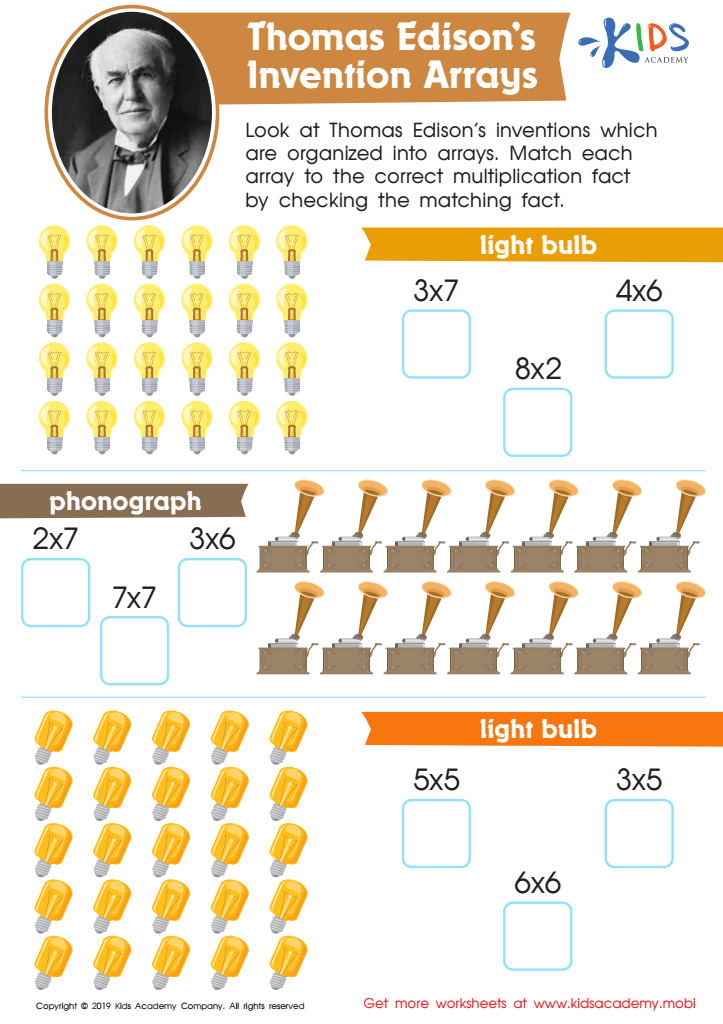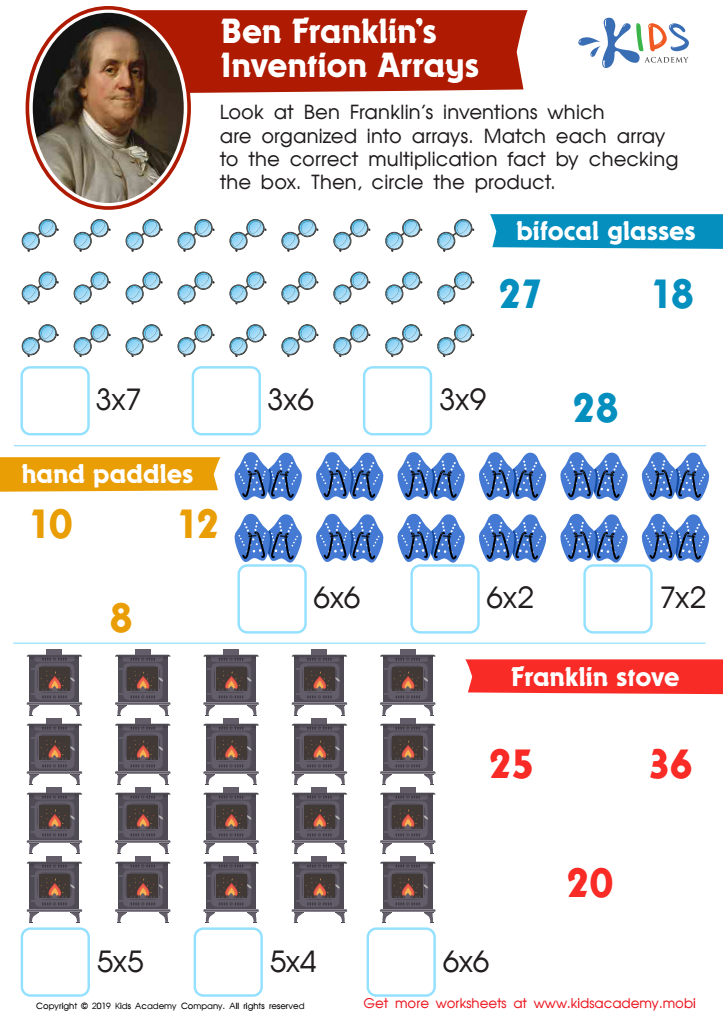Historical Knowledge Normal Arrays Worksheets for Ages 5-8
3 filtered results
-
From - To
Discover our engaging Historical Knowledge Normal Arrays Worksheets designed for children aged 5 to 8! These interactive worksheets blend math with history, helping young learners understand the concept of arrays while exploring intriguing historical facts. Each worksheet includes colorful illustrations and simple activities that foster critical thinking and enhance mathematical skills. Kids will uncover captivating historical events and figures, promoting a love for both subjects. Ideal for classrooms or homework, these age-appropriate resources provide a fun, educational experience. Download our worksheets today and inspire your child's curiosity in history and mathematics while honing their problem-solving skills!


Arrays of George Washington Carver’s Creations Worksheet


Thomas Edison’s Invention Arrays Worksheet


Ben Franklin’s Invention Arrays Worksheet
Historical Knowledge Normal Arrays (HKNAs) offer an engaging and structured approach for teaching young children about history and significant events. For parents and teachers, caring about HKNAs is vital because they provide a framework that enhances children's understanding of time, context, and cultural significance. Children aged 5-8 are naturally curious, and if properly guided, they can develop a foundational appreciation of history that influences their socio-emotional and cognitive growth.
Using HKNAs, educators can introduce complex historical concepts through age-appropriate narratives, visuals, and activities, making learning both fun and interactive. This age group is particularly adept at grasping basic timelines and key figures, enabling them to create connections between their lives and broader historical contexts.
Moreover, HKNAs promote critical thinking and analytical skills. Children learn to question and interpret historical events, fostering a more rounded worldview. Parents and teachers who integrate HKNAs can help children understand their heritage and gain a sense of identity, crucial for building self-esteem and empathy.
Ultimately, engaging young learners with historical knowledge at an early age equips them with the skills to appreciate diversity, understand past mistakes, and learn to value democratic principles as they grow.
 Assign to My Students
Assign to My Students















